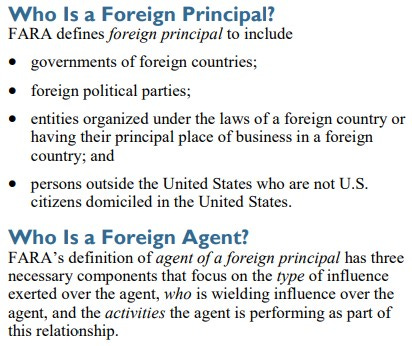When I posted a couple of days ago about the Russian claim that Ukraine had attacked the Kremlin in Moscow with drones and tweeted a link to it on the blue-bird app, it quickly got a like from an account called “UFO Sightings Daily (Website).”
An extra-terrestrial intervention was one option it did not occur to me to consider. I suppose it’s also possible that the drones somehow drifted over from a parallel universe. My imagination is obviously limited…
But it was a reminder of how important real critical thinking is in parsing information.
There are a number of reports and informational spots being made about Russian “disinformation” efforts over the Russia-Ukraine War. This is a very recent one from DW News.
“Disinformation” isn’t the same as propaganda, which is essentially an attempt to convince. But propaganda doesn’t have to be false, which is what people generally understand by “disinformation.” And neither disinformation nor propaganda are limited to politics, though that’s the context in which the term “propaganda” is often used. Current discussions of “disinformation” often focus on scientific disinformation or weird conspiracy theories as well as political misinformation. (Or UFOs.)
Here is an actually informative discussion held by the Quincy Institute about the US law dealing with “foreign agents,” people who are working on behalf of foreign countries or other “principals.” The conduct of “foreign agents” is regulated in American law by the Foreign Agents Registration Act (FARA), in particular.1 FARA isn’t limited specifically to foreign governments. The Congressional Research Service (CRS) has an informational report on FARA updated earlier this year.2
These two videos together provide a good range of how the topic of “disinformation” is handled. The DW News video seems fairly typical of the way this is discussed for a general audience. And, unfortunately, it doesn’t give viewers a whole lot of ideas on where they should go to find good information on the Russia-Ukraine War, which is the focus of that report. Nor does it offer much in the way of suggesting how the general public can apply the necessary kind of critical thinking in this area.
It basically tells us that Russia tries to influence opinion in foreign countries and that this is something people should worry about. And that’s about it.
How many adults are there in the US and Europe who need to be told that Russia tries to influence foreign opinion? Or that every other country in the world does, too, though presumably some like Micronesia have considerably fewer resources to devote to that activity?
DW News interviews Keir Giles of the prestigious Chatham House, author of Russia's War on Everybody: And What it Means for You (2022). At 14:05 in the video, he says:
One of the biggest successes that Russia’s longterm disinformation and influence campaigns has had is convincing Europe and America that you cannot offend or impede Russia or you risk nuclear war. That’s been a phenomenally successful campaign that has changed the whole terms of everything that people talk about in terms of escalation with Russia. And has been one of the key brakes on Germany, the United States, other countries providing what Ukraine needs in order to win this war. [my emphasis]
Wow, the only reason anyone worries about risks of nuclear war is lying propaganda! Only wimps worry about nuclear bombs!!
This is nonsense, of course. Seriously, dude, that’s what you’re going with?
A good general rule would be, if you are really trying to teach people about disinformation, practicing your Dr. Strangelove act is not the best way to go about it. If someone immediately reminds you of Gen. Jack D. Ripper, they might not be the best source. On anything.
But at a book panel in December, Giles talked about some of his field research on that point:
The nuclear intimidation and the fear of war with Russia has permeated so deeply in our society. When I’m doing book launches and book signings in bookshops in small market towns around the UK, I see the looks on people’s faces as they walk past, catch sight of the cover and glance hurriedly away and scurry on because they don’t want to think about it, because it is already a scary topic, and that is a success for Russia and that targets everybody. 3 [my emphasis]
Or maybe they are just thinking, “That book title sounds kind of frivolous.”
The Quincy Institute panel gives a much wider view of how foreign influence is exercised. It includes Matt Duss of the Carnegie Endowment (and a former Bernie Sanders staffer), who states bluntly, starting at 35:40 in the video, where he says his focus is:
… bringing some real penalty and, frankly, a sense of shame to the influence industry. I want to completely agree … about getting more reporters on these issues not just [in] regard to foreign influence but to lobbying influence, period. Certainly, Americans are free to lobby their government and to advocate for policies. But the kind of advantage enjoyed by very, very wealthy unaccountable interests both domestic and foreign is enormous.
We are starting to have, I think, a much more robust conversation about the fact that American politics is extremely corrupt. We have a long way to go, but we need to understand that there is no other developed democracy that is an open-air market for influence the way the United States is. [my emphasis]
The concern this panel is addressing is the larger structure of influence, which is by not means restricted to seeding disinformation about foreign policy issues into public discussion via obscure QAnon-style chat groups.
The CRS summary of FARA contains these definitions:
The panel also discusses the problem presented by foreign governments financing academic think tanks and how restrictions of foreign lobbying can be used by “authoritarian regimes and authoritarian-leaning regimes” to suppress what should legitimately be considered free speech.
David Laufman explains that FARA does not forbid individuals from advocating on behalf of foreign principals but is focused rather on registration and disclosure, as the law’s name implies.
Of course if the activity involves something like money-laundering, bribery, or espionage, those are still illegal. (Well, mostly!) As CRS notes, “Special Counsel Robert Mueller’s investigation into Russian influence during the 2016 election resulted in several high-profile FARA convictions.”
Trump’s first National Security Adviser Michael Flynn pleaded “guilty to federal charges that he lied to the FBI during an investigation of Russia’s intervention in the 2016 presidential election [and] also admitted that he violated federal law in regards to his lobbying work for Turkey.”4 [my emphasis]
Conclusion
It’s helpful for news reports and panels like the ones above to point out that “foreign” influence is multifaceted and that the US and other countries have extensive laws and regulations defining what is acceptable and not acceptable. It’s important to focus on current methods of transmission. But to talk about countries at war trying to influence the information people in other countries get about as though that were something Vladimir Putin recently invented is the opposite of helpful.
It would be much more useful for a series of reports like the one DW News is starting with the video above to look at some particular claims and walk the viewers through how a reporter, or a foreign policy expert, or military and intelligence analysts would parse the information and what kinds of questions they would ask. Ones like:
What is the source of the information? What evidence is available? Who has evaluated it? What do governments involved say about it, and what might their motives be for taking their particular position? Does the story as presented make sense? Is it consistent with other knowledge I have about similar reports?
“Evidence” that is not so good might be something like: The argument I make in my book is obviously right because people in small towns in Britain aren’t buying as many copies of it as I want them to.
Finally Fixing FARA? Quincy Institute for Responsible Statecraft YouTube channel 05/03/2023. (Accessed: 2023-04-05).
Foreign Agents Registration Act (FARA): A Legal Overview. Congressional Research Service 03/09/2023. <https://crsreports.congress.gov/product/pdf/IF/IF11439> (Accessed: 2023-04-05).
Giles, Keir & McGlynn, Jade & Lucas, Edward & Nemazee, Marzam (2022): Russia's War on everybody (panel transcript). Chatham House. <https://chathamhouse.soutron.net/Portal/Public/en-GB/DownloadImageFile.ashx?objectId=6837&ownerType=0&ownerId=202986> (Accessed: 2023-04-05).
Waas, Murray (2012): Michael Flynn ignored official warnings about receiving foreign payments. The Guardian 04/08/2021. <https://www.theguardian.com/us-news/2021/apr/08/michael-flynn-ignored-official-warnings-receiving-foreign-payments> (Accessed: 2023-04-05).


